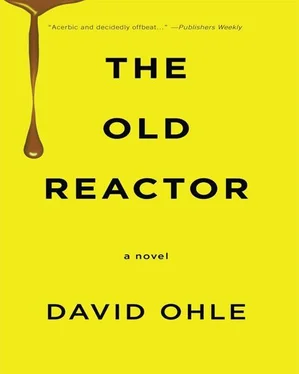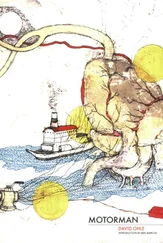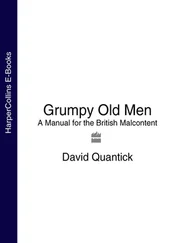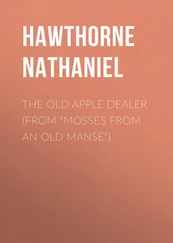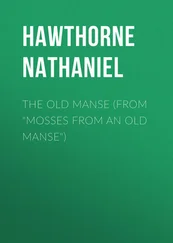David Ohle - The Old Reactor
Здесь есть возможность читать онлайн «David Ohle - The Old Reactor» весь текст электронной книги совершенно бесплатно (целиком полную версию без сокращений). В некоторых случаях можно слушать аудио, скачать через торрент в формате fb2 и присутствует краткое содержание. Год выпуска: 2014, Издательство: Dzanc Books, Жанр: Современная проза, на английском языке. Описание произведения, (предисловие) а так же отзывы посетителей доступны на портале библиотеки ЛибКат.
- Название:The Old Reactor
- Автор:
- Издательство:Dzanc Books
- Жанр:
- Год:2014
- ISBN:нет данных
- Рейтинг книги:4 / 5. Голосов: 1
-
Избранное:Добавить в избранное
- Отзывы:
-
Ваша оценка:
- 80
- 1
- 2
- 3
- 4
- 5
The Old Reactor: краткое содержание, описание и аннотация
Предлагаем к чтению аннотацию, описание, краткое содержание или предисловие (зависит от того, что написал сам автор книги «The Old Reactor»). Если вы не нашли необходимую информацию о книге — напишите в комментариях, мы постараемся отыскать её.
The Old Reactor — читать онлайн бесплатно полную книгу (весь текст) целиком
Ниже представлен текст книги, разбитый по страницам. Система сохранения места последней прочитанной страницы, позволяет с удобством читать онлайн бесплатно книгу «The Old Reactor», без необходимости каждый раз заново искать на чём Вы остановились. Поставьте закладку, и сможете в любой момент перейти на страницу, на которой закончили чтение.
Интервал:
Закладка:
He ran toward the car he’d just stepped from, now on its way to the turn at Old Reactor Road. After chasing it a block, his knees ached, his ear throbbed, and he was exhausted. He stopped, returned to the stop at a leisurely pace and waited. The sun, when it peeked through passing clouds, was three-quarters toward mid-heaven. It was about ten thirty, Moldenke guessed. By the time the car made its rounds and picked him up again it was about noon.
The pond could be seen shimmering beside the concrete dome of the Old reactor as the car slowed for its final stop on the route. There were bathers lounging on the green grass at the water’s edge, free children playing, two or three skiffs on the pond. The bathers all wore red rubber swimsuits.
Moldenke saw a free woman, also in a red suit, frying mud fish in a pan over a small fire made of rags, pine cones, and a pair of old canvas shoes. He asked her where to get a bathing suit and she directed him to a rental and dressing area on the other side of the pond.
He lit a Julep and walked along the shore looking for Sorrel and heading for the dressing area at the same time. The weather was holding on pleasantly, the air busy with bees and dragonflies and little biting gnats. Frogs croaked in the mudflats. There were free men fishing in the deeper water. One of them pulled in a big mud fish so heavy it snapped the line and nearly hit Moldenke in the head as it flew. One of the fisherman said, “They’re twice as big as what you get at Saposcat’s.” Another said, “They taste a lot better, too. There’s something in the water.”
Moldenke asked if any of them knew Sorrel. One said, “Big Ernie’s girl?”
“Yes, I’m supposed to meet her here.”
Moldenke heard Sorrel’s voice. “Moldenke! Over here! In the water!” He spotted her out near the middle, floating on her back. She wasn’t wearing a veil and from that distance didn’t appear deformed at all. “Oh, that ear,” she shouted. “Hurry, go rent a suit and jump in. It’ll be much better right away. Look at me.”
“I’m sorry for being late. The cars weren’t running on time.”
“It doesn’t matter. Rent a suit and get in.”
Moldenke went around to the rental shed and showed his pass card. “Give me a suit, please.”
“Size?”
“I’d say medium.”
“Everyone seems to be medium these days. All we got is large. People used to be large before the liberation. I’ll rent it to you, but it might fall off.”
“If that’s all you have…I’ll hold on to it if I have to.”
“Good enough. Here you are. It’s been boiled, don’t worry. Pick any empty stall to change. Here’s your key.”
There was a temporary metal structure that looked like a small barn with stalls for changing and hooks for hanging clothes. Moldenke put on the large red suit and hung his dirty uniform to air out. The key turned smoothly in a small padlock that seemed easy to break open using the simplest of tools or a strong pair of hands with a hammer and spike. While he thought it was a pointless act, Moldenke locked the door and put the key in his bathing suit pocket. His uniform had no real value, but he didn’t want to go all the way back to the Tunney naked.
He pulled in the bathing suit’s sash and cinched it as tightly as he could in his fist then stepped through the cloth curtain into the scene outside. Those who saw him in the over-sized suit were amused. Some of them snickered. One said, “Get in the water. It’s heavy. It’ll fix that ear.”
Moldenke rounded the pond from a different direction. About midway, he spotted Sorrel. She was no longer on her back, but face down in the water, probably trying to give her damaged places a good dosing. He waded into the shallows, worried that when the water was deep enough he would have to let go of the suit’s waist in order to swim out to her. Even as the water rose to his knees, he could feel its weight against him. He dove forward and swam toward Sorrel. The buoyancy of the heavy water made it almost effortless. The red suit slid down and off him as he thought it might, floating off among green lily pads out of his reach.
The water supported his light weight even when he stood upright and did nothing. Now he walked in it and paddled with his hands with the sensation that it was closing around his body like syrup or a gel. He dipped his ear in as he swam. When he reached Sorrel, he took one of her feet in his hand. It was a foot that felt good to him. He had never held a woman’s foot in his hand.
One of the fishermen called out, “Hey, you, turn her over. She might drown.”
Her face was still submerged. No part of her moved. Moldenke placed his hands on her hip and turned her over. She rolled like a log and expelled a long-held breath of air with a mouthful of heavy water. “Oh, Moldenke. Isn’t this the cat’s meow, this water? Look at my face. I don’t need a veil. You should soak your ear more. You should bathe here every day.”
Moldenke cupped his hands, filled them with water, and dipped his ear. “You do look very good, Sorrel. There’s a pretty face on the mend if I ever saw one. You can throw the veil away.”
“I’ll never be beautiful, so I suppose I’ll aim for sublime. Have you read The Treatise ?”
“A paragraph or two.”
“It’s funny. When the beautiful are deformed they enter a state of being that Burke claims either equals or tops beauty — the sublime.”
Moldenke raised his head, and with his bulbous ear dripping water, slid his hand under Sorrel’s red suit, placed it on her cool breast and asked, “Would you consider mating with me?”
“Maybe. I’ll ask my father. He’ll probably want to have a talk with you.”
“All right.”
“Let’s get out of the water. I’m beginning to pucker,” Sorrel said.
“That’s fine, but I lost my suit. They gave me a big one and it fell off. It’s out there in the lily pads. Let me get it. The key is in the pocket.”
“I’ll meet you at the rental shed.”
“Yes, in a minute or two.”
Sorrel and Moldenke walked and paddled through the water in opposite directions.
Brainerd Franklin admitted a reporter on to the grounds of his estate, located on a bluff above the beach at Point Blast. His face was thicker now, the reporter recalled. She hadn’t seen him since his heart attack. His hair was grayer. His eyes weren’t as bright as they once were, but still pierced. His recurring phlebitis forced him to move slowly, the old self-assured stride replaced by an irritating limp.
He gingerly eased himself into a gray velvet recliner, resting his leg on a matching footstool. “I bought this chair when I was at my peak,” he said. “It’s been my favorite ever since I said goodbye to the game I loved. My resignation speech was written in this chair, with a glass of bitters right there on that table.”
The former exhibition golfer says he did the best he could with the talent he had. “I never thought about being loved. I wanted to golf, that’s all. I’ve married to keep up appearances, but it’s cold and distant.”
His resignation from the lucrative exhibition circuit has eaten away at his transplanted heart. His sad eyes glanced at a showcase where mementos of his headline-making world tours were proudly displayed. Then he gave a faint grin. “You know, in times like these, you find out who your friends are.” It’s no secret that in the aftermath of his retirement many of Franklin’s personal contacts abandoned him.
“Come on,” he said, limping to the door. “Let me show you around.”
The reporter followed him from his rosewood-paneled office and climbed into a yellow golf cart with the name Franklin painted above the grille. As they drove through the estate grounds, taking things at a slow clip, Franklin lamented the sorry state of his former golfing empire. “Those buildings over there were filled with my working staff. Now they’ve been stripped of furniture. But I’m told that’s the way it is for a jellyhead, the ups and the downs. I’ve had the ups. Now I’m going down.” The cart then returned to the main house. “I get out here,” he said.
Читать дальшеИнтервал:
Закладка:
Похожие книги на «The Old Reactor»
Представляем Вашему вниманию похожие книги на «The Old Reactor» списком для выбора. Мы отобрали схожую по названию и смыслу литературу в надежде предоставить читателям больше вариантов отыскать новые, интересные, ещё непрочитанные произведения.
Обсуждение, отзывы о книге «The Old Reactor» и просто собственные мнения читателей. Оставьте ваши комментарии, напишите, что Вы думаете о произведении, его смысле или главных героях. Укажите что конкретно понравилось, а что нет, и почему Вы так считаете.
